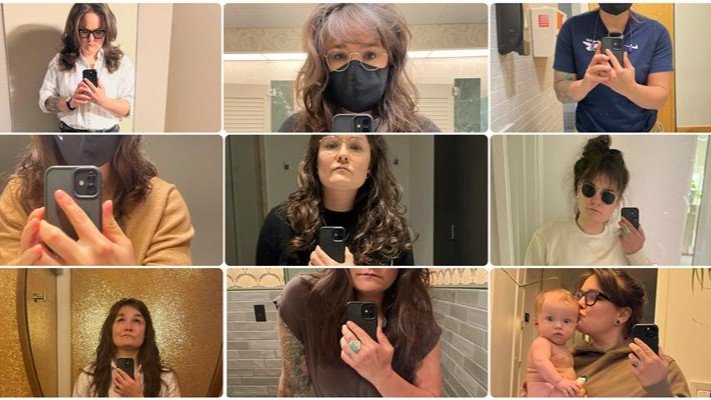Please Don’t Call on Me: What Learning to Read Late Taught Me About Learning AI
I didn’t learn to read until 4th grade.
Not “struggled with reading," I mean literally couldn’t read.
I knew it. I hid it. I faked it. I was passed along, slipped through the cracks, and prayed no one would call on me to read out loud.
That feeling? Of falling behind, of being ashamed, of pretending? It’s what I see in a lot of smart, capable professionals right now when it comes to AI.
They nod along in meetings.
They avoid eye contact when AI comes up.
They’re hoping not to get “called on.”
But here’s the truth: you don’t need to be an expert to get started. You just need a little help. A coach. A path. Permission to ask the awkward questions.
You too can learn to read. And now? I love reading. Like, really love it. I’ve read every Pulitzer-winning novel since Toni Morrison's Beloved won the metal. Reading is how I become someone new, again and again.
I wrote a sweet little, metaphorical article about adoption and change. It’s personal. It’s honest. It’s an invitation. Message me, let’s talk about AI Coaching.
Showing Up Anyway: AI Anxiety, Optimistic Futures, and Sundays with Frankie.
What if your AI anxiety isn't about the tech at all? What if it's the same fear that shows up when you're raising a kid?
Not the fear of robots taking over.
The fear of getting it wrong.
Of not being ready.
Of looking like you don’t know what you’re doing.
I’ve spent the past year helping others get more confident using AI. I love it. I use it daily. But the tension around AI reminds me of something way more personal, those quiet Sunday mornings alone with my 15-month-old daughter. No roadmap. No expert. Just instincts, pressure, and presence. And that voice in the back of my mind asking: Am I doing this right?
Turns out (this is another personal metaphor LinkedIn article, so...), AI and parenting have more in common than you’d think. Both ask us to stay present. To experiment before we feel ready. To keep showing up, even without a perfect plan.
In this piece, I connect the dots between LLMs, parenting spirals, and a powerful talk by futurist Aimee Pedretti who challenged us to trade fear for urgent optimism.
And tell me—have you ever felt the pressure to "get it right" before you even begin? What helps you move forward anyway?
It Won’t Save Us From Hustle Culture, If We Train It On Hustle Culture
We’ve spent decades chasing efficiency, grinding harder, pushing for that one last productivity hack, only to find that the "win" never really arrives.
AI Enters The Chat: promising to automate the busywork so we can focus on creativity, innovation, and strategy. Will we actually use AI that way? Or will we just drag our bad habits from the last era into the next, working even faster, burning our people and our position in the market out out at break neck speeds, never seen before!?
AI isn’t a savior. It’s a mirror.
The companies that get AI right won’t be the ones that automate the fastest. They’ll be the ones that rethink work entirely. The ones that choose to reinvest in their people, processes and technology, not just squeeze more out of them.
So, what do you see in the mirror? And more importantly....do you like it?
At the Party with AI: Knowing When to 'Leave'
If our current reality is a house party, I am the one in the kitchen at 2 am still chatting with my new best friend, AI about anything and everything. In this latest witty, honest, personal and professional LinkedIn article I share two PSA's around AUPs for our whole lives.
AI is the ultimate conversation partner, my uninterrupted, always-available expert, collaborator, and idea generator. As an extravert and a verbal processor this is both a superpower and an Achilles heel for me. It means that I need to be the one to walk away from the engagement, because my AI conversation partner won't.
The Hard Way Is Human: What AI Misses
The other day, my wife was cutting through a screw with a hacksaw. I offered her an easier way—because, of course, that’s who I am. Efficiency and service are my love languages. But before I could even finish my sentence, she said, “Babe, I want to do this the hard way.”
That phrase has stuck with me. It’s not just about getting the job done, its about the joy of doing THAT work.
AI can do a lot of things faster, better, and smarter—but it doesn’t understand why someone might choose to do things the hard way. This is for leaders to figure out.
This latest cheesy LinkedIn piece explores how we can integrate AI without losing what makes us human. Let AI do what it does best (so many things we do not love) and leave the enjoyable work for us. Because sometimes, the hard way isn’t just a way of working, it’s where the magic happens.




